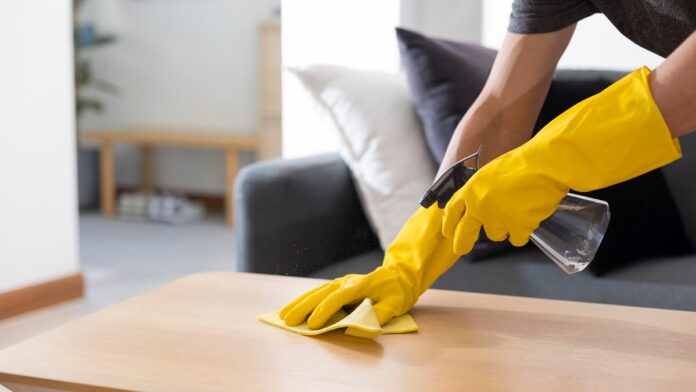Cleaning up around the house can only be a good thing, can’t it? Ridding the bathroom and kitchen bench of germs must benefit our health, surely? The broad answer to that question, of course, is yes. However, depending on the cleaning products you use, that ‘yes’ could come with a ‘but’.
The reason for that ‘but’ is the ingredients that may or may not be in the household cleaning products you use. These ingredients won’t directly cause you harm, but they are part of a group known as quaternary ammonium compounds (QACs). Quaternary ammonium compounds have a known link to antibiotic resistance. In layperson’s terms, they are linked to superbugs.
What’s more, new research completed at Monash University indicates nearly a third of the products they investigated contained these ingredients. Allowing the increase and spread of superbugs is clearly not a good thing. Why, then, do 31 per cent of cleaning products incorporate ingredients that may facilitate that spread?
The Monash study, published in the UK’s Microbiology Society journal, Access Microbiology, points the finger at rather lax legislation. It suggests that Australia’s Therapeutic Goods Act (TGA) has a vulnerability that allows unfettered use of the potentially adverse compounds.
“In Australia, many antimicrobial consumer products are regulated for efficacy and safety under the Therapeutic Goods Act,” the authors stated. “But the potential to drive microbial adaptation and AMR [antimicrobial resistance] is not considered.”
Their research “underscores the broad use and light regulation of antimicrobial biocides in products available to the general public in Australia”.
What are superbugs and how are cleaning products helping them thrive?
Just as the word ‘bug’ is a generic synonym for an infection that causes colds and flu, ‘superbug’ is used similarly to describe infections that are resistant to many antibiotics. As the COVID pandemic has highlighted, infection-causing viruses and bacteria can mutate regularly. Hence the need for updated vaccinations at times. The same principle applies to influenza. The virus is constantly evolving, necessitating new vaccines each winter.
Bacteria also evolve, sometimes to the point where a previously effective antibiotic no longer kills it. Some bacteria have evolved to a stage where most antibiotics are an ineffective treatment. We call these superbugs, and they have what is known as antimicrobial resistance.
According to the Monash researchers, evidence suggests inclusion of QACs in cleaning products actually promotes the emergence of AMR bacteria.
Can’t we just modify antibiotics to counter superbugs?
Perhaps in theory, but right now we are losing the war. As University of Technology Sydney microbiologist Liz Harry puts it: “We’re running out of drugs that will treat infections.”
What we can do is cut back on our use of cleaning products containing QACs. Ms Harry says consumer education is needed, alerting consumers to the pros and cons of cleaning products with antibacterial ingredients.
The problem with that is many cleaning products containing these antibacterial QACs are not branded as antibacterial. Consumers would need to check the list of ingredients, which is usually long, and know what they’re looking for.
The Monash study does not make specific recommendations, advising that their study “provides an information resource to inform further research and stewardship efforts”.
As it stands the TGA does not assess whether disinfectants and sanitisers contribute to antimicrobial resistance. Its tests are limited to ensuring cleaning products achieve their disinfection claims.
However, a TGA spokesperson said it was working with other regulators in a coordinated global approach to find safe, effective, innovative solutions.
In the meantime, the onus is on consumers to educate themselves about which ingredients their cleaning products include. Following the advice of the Victorian government’s Better Health channel may also be wise. It recommends that healthy households steer clear of antibacterial cleaning products. “Effective handwashing with soap, and household cleaning using warm water and a plain detergent” is still the way to go.
Which household cleaning products do you use? Do you know if they include antibacterial ingredients? Let us know via the comments section below.
Also read: Does cleaning with vinegar and baking soda actually work?
Disclaimer: This article contains general information about health issues and is not advice. For health advice, consult your medical practitioner.


Where can I find a list of these ingredients, so that I know what to look for and avoid ??
Ditto as per Gordon Nussey. And is normal household bleach still the best product for killing “bugs”?